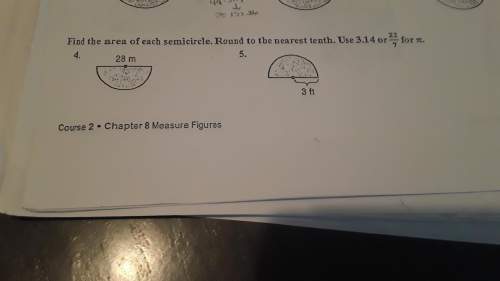30
karl is investigating two transformations.
karl claims that a reflection over the...

Mathematics, 12.09.2019 19:30 kale2158
30
karl is investigating two transformations.
karl claims that a reflection over the line y=1 transforms a point (x, y) to the point (2−x, y). for example, (1,1) is reflected to (1,1).
karl makes a second claim that a reflection over the line y=x transforms a point (x, y) to the point (y, x). for example, (2,2) is reflected to (2,2).
which statement correctly classifies karl’s claims?
a
karl is correct regarding the first claim, but a reflection over y=x carries (x, y) to (x, y).
b
karl is correct in both of his claims because each provided example supports the associated claim.
c
karl is incorrect in both of his claims because neither example is enough to prove the associated claim.
d
karl is incorrect as a reflection over line y=1 carries (x, y) to (x,2−y) but is correct in his second claim.

Answers: 1


Another question on Mathematics

Mathematics, 21.06.2019 13:10
True or false? a triangle can be circumscribed about a given circle
Answers: 1

Mathematics, 21.06.2019 19:10
With this question substitute t=3 and t=5 to determine if the two expressions are equivalent. 4(t + 3) 4t+12 which statements are true? check all that apply. a. the value of both expressions when t =5 is 32. b. the two expressions are not equivalent. c. the value of both expressions when t=3 is 15. d. the value of both expressions when t=5 is 23. e. the two expressions are equivalent. f. the value of both expressions when t=3 is 24.
Answers: 3

Mathematics, 21.06.2019 19:30
Jada has a meal in a restaurant she adds up the prices listed on the menu for everything they ordered and gets a subtotal of $42.00. when the check comes, it says they also need to pay $3.99 in sales tax. what percentage of the subtotal is the sales tax
Answers: 2

Mathematics, 22.06.2019 02:00
Study published in the journal of personality and individual differences found that adults with adhd displayed more creative achievement than those who didn't have the disorder. "for the same reason that adhd might create problems, like distraction, it can also allow an openness to new ideas," says holly white, assistant professor of cognitive psychology. "not being completely focused on a task lets the mind make associations that might not have happened otherwise." white and priti shah at the university of michigan gave 60 college students – half of them with adhd – a series of tests measuring creativity across 10 domains. the adhd group scored higher across the board. the adhd group showed more of a preference for brainstorming and generating ideas than the non-adhd group, which preferred refining and clarifying ideas. the adhd status of the participants was established by asking whether the individual had ever been clinically diagnosed with adhd/add. the tests of creativity were pencil-and-paper tasks administered in a laboratory setting. each of the ten scales was comprised of multiple questions, the scores on which were summed (e.g., writing creativity: "how many words can you make from the letters in the word 'psychology' invention creativity: "write down as many uses for a paper clip that you can think of.") this procedure does allow for a participant to be scored as showing no creativity under these conditions. a) state the research question in plain language (i wonder if is related to (1 point) b) state the null hypothesis (1 point) c) state the research hypothesis (1 point) d) is the research hypothesis directional or non-directional (1 point) e) name the predictor / independent variable f) give the operational definition of the predictor / independent variable g) evaluate the construct validity of the predictor / independent variable. (face, procedure, method-match) h) name the outcome / dependent variable i) give the operational definition of the outcome / dependent variable. j) evaluate the construct validity of the outcome / dependent variable. (face, procedure, method-match)
Answers: 1
You know the right answer?
Questions



Social Studies, 17.03.2020 23:32

Social Studies, 17.03.2020 23:32

Mathematics, 17.03.2020 23:32


Chemistry, 17.03.2020 23:32


Mathematics, 17.03.2020 23:32

Mathematics, 17.03.2020 23:32

Mathematics, 17.03.2020 23:32

Social Studies, 17.03.2020 23:32





History, 17.03.2020 23:32

Mathematics, 17.03.2020 23:32





